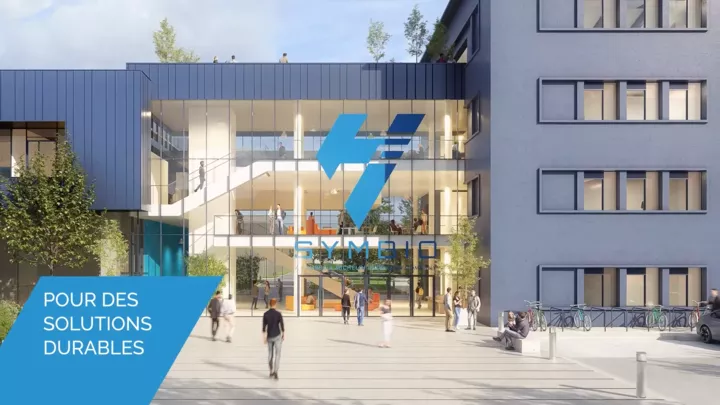Integrated innovation and production capabilities
Our roadmap for developing and industrializing ever more efficient and competitive hydrogen fuel cell systems.
- 2021/ 2023: Pilot plant – 1,000 to 2,500 fuel cell systems per year. Focused on process development.
- 2023/ 2028: Ramp-up to large-scale production – from 10,000 to 20,000 systems per year. Launch of SymphonHy (Saint-Fons, France), Europe’s largest integrated fuel cell production site (IATF 16949 certified), and opening of the Temecula plant in California, USA.
- 2028–2030: Capacity doubling – 50,000 systems/year. New gigafactory planned in France.
- Beyond 2030 ambition: 200,000 systems per year worldwide.
SymphonHy: Innovation Meets Industrialization.
SymphonHy is Europe’s largest integrated hydrogen fuel cell production site. Certified to IATF 16949, it brings together our R&D center and manufacturing operations under one roof to accelerate innovation and scale-up. With over 100 test benches and cutting-edge equipment, SymphonHy sets new industry standards in performance measurement and system validation. A second gigafactory is under consideration for 2028–2030.
🔬 360° Open Innovation
Our 7,000 m² R&D center hosts over 100 engineers, 20 PhD researchers, and more than 20 nationalities. Expertise spans chemistry, electrochemistry, materials science, mechatronics, simulation, quality control, and more. This integrated setup fosters rapid iteration, co-development, and the emergence of next-generation fuel cells that are more competitive and scalable.
🎯 HyMotive: Scaling to Global Leadership
HyMotive is Symbio’s transformation project, supported by the European Commission (IPCEI Hy2Tech) and the French Government (France Relance, France 2030). With a €1 billion investment over 7 years, it aims to accelerate industrialization and breakthrough innovation, while building a strong hydrogen ecosystem in Europe — a key enabler of the EU’s net-zero goals.


Full Value Chain Control for Tailored Solutions.
At Symbio, we master all key components of our fuel cell systems to deliver solutions precisely adapted to each use case:
- Electrochemical core (MEA – Membrane Electrode Assembly)
- Complete fuel cell stack (bipolar plate and MEA assembly)
- Full system (Balance of Plant, operating conditions, packaging)
This integrated approach allows us to optimize every performance parameter and develop new generations of systems that are increasingly efficient, competitive, and scalable. Our goal: reach cost parity with diesel by 2030 for mobility applications.
⚙️ Innoplate: Producing a Strategic Component in Europe
In partnership with Schaeffler, we launched Innoplate, a joint venture dedicated to the production of bipolar plates.
The plant in Haguenau (Alsace) opened in 2024, with an initial capacity of 4 million plates/year, aiming for 50 million by 2030.
📊 A Unique Methodology to Measure Performance
 We’ve developed a proprietary performance assessment approach based on 10 key criteria.
We’ve developed a proprietary performance assessment approach based on 10 key criteria.
It helps identify the optimal solution for each application, maximizing performance while controlling the total cost of ownership over the vehicle’s lifecycle.
Symbio North America: our industrial footprint in the USA.
In 2024, we inaugurated our North American production site in Temecula, California, dedicated to the assembly of hydrogen-powered heavy-duty vehicles (trucks, commercial vehicles) and the manufacturing of complete fuel cell systems. This facility builds on the momentum of the “Symbio H2 Central Valley Express” project, supported by the California Energy Commission (CEC), which aims to demonstrate the reliability and benefits of hydrogen mobility for heavy transport. Both initiatives contribute to California’s goal of achieving economy-wide carbon neutrality by 2045.

